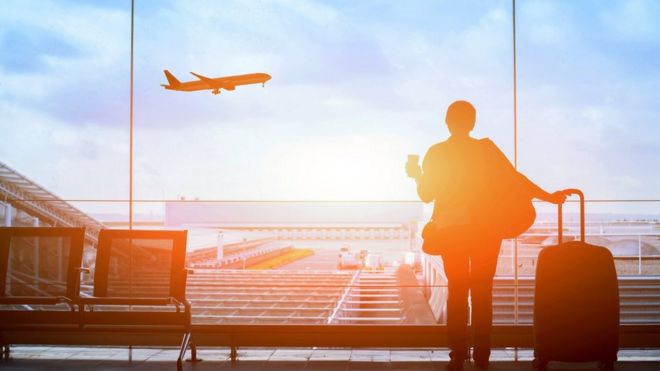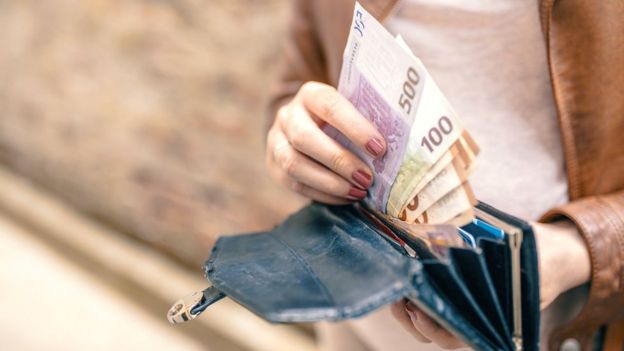Exchange rates: Why has the value of the pound jumped?
13 December 2019

The value of the pound jumped after the Conservative Party won a majority in the UK general election.
Changes in the value of sterling affect everyone – from holidaymakers and those filling up their cars with petrol, to business owners and investors.
So, who decides its value?
How is currency valued?
When people talk about the pound falling or rising, that means it will buy more or less of a foreign currency because the exchange rate has changed.
Very often, the pound is compared to the US dollar, given the huge size of the American economy.
It is also frequently compared with the euro, because of the UK’s close trading relationship with the European Union (EU), but can be matched to any currency around the world.
Today, most countries use what is called a floating exchange rate, where the value depends on how much people want a certain currency at a point in time.
Exchange rates are live, meaning they change constantly, because they reflect the frequently changing demand for each country’s currency worldwide.
What happened to the pound?
The pound was trading at just below $1.50 before Britain voted to leave the EU in June 2016.
The value of sterling has fallen since then, driven in large part by Brexit uncertainty. When Boris Johnson took over as prime minister in July, its value had fallen to about $1.22.
But immediately after a Conservative majority was predicted, its value increased by 1.9% to $1.34. That was the highest level seen against the dollar since May 2018.
Some analysts have said that the bounce is down to the fact a large Conservative majority means Boris Johnson could get his Brexit deal through Parliament more easily, removing some uncertainty.
Sterling has followed a similar pattern against the euro.
What affects the exchange rate?
Supply and demand for sterling determines the exchange rate of the pound.
If demand for sterling goes up, then its price will too.
That is affected by lots of different factors, including:
- Economy: Strong economies have strong currencies because other countries want to invest there. They need the local currency to do so, pushing up demand and the money’s worth
- Savings: When UK banks raise interest rates, holding savings or investments in pounds becomes more attractive, as you get more back for your money. So, demand for sterling increases
- Prices: If UK goods are cheaper than those abroad, they will be attractive to foreign businesses who will need sterling to purchase them. This will tend to push up the exchange rate
- Public finances: The state of a government’s bank balance, or how much debt it has, can also affect the exchange rate
- Speculation: The exchange rate is highly vulnerable to currency speculators, who buy and sell sterling based on expectations of future events
How does the exchange rate affect me?
That largely depends on who you are.
Investors all around the world trade huge amounts of foreign currency every day.
The rate at which they swap currencies determines what rate people get at the bank, post office or foreign exchanges.
A fall in sterling can affect household finances too.
If the pound is worth less, the cost of imported goods from overseas goes up.
As oil is priced in dollars, a weaker pound could also make filling up your car with petrol more expensive.
But most individuals do not think about exchange rates until it is time to swap money for a foreign holiday.
 Many now opt for pre-loaded currency cards on holiday instead of cash
Many now opt for pre-loaded currency cards on holiday instead of cashSo when is it best to buy cash?
It is hard to predict how the value of the pound will change, so one common suggestion is to change half of your holiday money weeks in advance of departure, and the rest just before, to hedge your bets.
Ordering currency online in advance and then collecting the cash in person can also secure a better rate.
